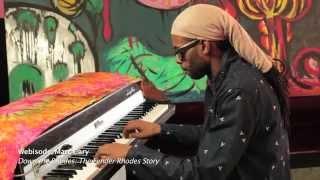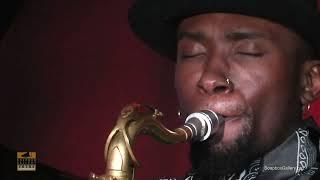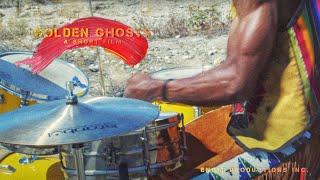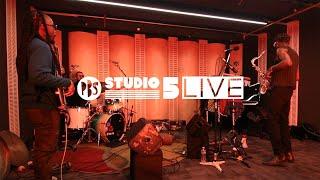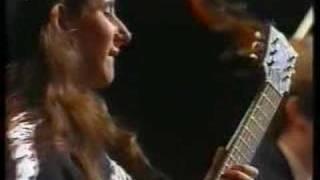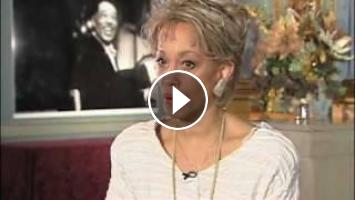For more stories: http://voaspecialenglish.com | http://facebook.com/voalearningenglish
Duke Ellington was one of the leading jazz artists of the 20th century. He was also a native of Washington.
Duke Ellington brought jazz to the world. He and his orchestra performed for millions of people. In 1969, President Richard Nixon gave him the Presidential Medal of Freedom. Americas recording industry honored Ellington with 13 Grammy Awards.
Today, his granddaughter, Mercedes Ellington, is head of the Duke Ellington Center for the Arts.
MERCEDES ELLINGTON:The music of Duke Ellington is of such a structure that it crosses generations and it makes, puts everybody on an even scale. Duke Ellington used to be very charming and very gracious, and appreciated his career to such an extent that, when he was invited to play in different countries especially, he would compose a suite dedicated to that country. He loved to go places he was not supposed to go. He never labeled his music. It was not jazz, it was not this. It was just, he said, it was American Music.
Duke Ellington helped to break down racial barriers in the United States.
MERCEDES ELLINGTON:The commonality between people is one of the things that I think that Ellington wanted to accentuate. He was always on the path of acknowledging what was really happening in the world. But the ideal of people being drawn together through music was his goal. And, he was constantly writing. Every day, he wrote. He wrote every day, even when he was ill, dying in a hospital. There was music paper. He had music paper and a piano at the foot of the bed.
Mercedes Ellington rarely saw her grandfather.
MERCEDES ELLINGTON:We never saw him really because the orchestra was constantly on tour. The only time that we would see them is when they came to New York. They would play at the Apollo, they would play the Rainbow Room. And so we had these intimate family gatherings backstage in the dressing rooms.
As a boy, Ellington showed more interest in sports than music. But musicians were more respected.
MERCEDES ELLINGTON:The ladies were drawn to the piano players and the musicians. And so as his interest in ladies increased, so did his interest in music. So he was driven by music and by women.
Duke Ellington started playing the piano when he was seven. By age 15, he was writing songs. Years later, he never wanted people to know his age.
MERCEDES ELLINGTON:I think he was vain enough that he did not want like all of his lady friends and certainly some of his fans to know that he was old enough to have grandchildren, so he asked me to call him Uncle Edward.
Mercedes joined Ellingtons orchestra on a trip to Russia in the 1970s.
MERCEDES ELLINGTON:The people were running on the tarmac alongside the plane as we landed, with bouquets of flowers. They had been listening to the music of Duke Ellington through Radio Free America. There were enough Russian people who knew about the music and had secret recordings of the Ellington band. So there was a great, great reception everywhere we went.
This spring, the musical Sophisticated Ladies opened at the Lincoln Theatre in Washington. Duke Ellington performed here many years ago. The show is based on his music. Mercedes Ellington is the shows artistic adviser.
MERCEDES ELLINGTON:He lived to work. And so when he traveled and toured, that was when he was in heaven.
Duke Ellington wrote more than three thousand musical compositions. He died in 1974. Today, this native Washingtonian is remembered as one of the most influential jazz artists of the 20th century. Im Barbara Klein.
Duke Ellington was one of the leading jazz artists of the 20th century. He was also a native of Washington.
Duke Ellington brought jazz to the world. He and his orchestra performed for millions of people. In 1969, President Richard Nixon gave him the Presidential Medal of Freedom. Americas recording industry honored Ellington with 13 Grammy Awards.
Today, his granddaughter, Mercedes Ellington, is head of the Duke Ellington Center for the Arts.
MERCEDES ELLINGTON:The music of Duke Ellington is of such a structure that it crosses generations and it makes, puts everybody on an even scale. Duke Ellington used to be very charming and very gracious, and appreciated his career to such an extent that, when he was invited to play in different countries especially, he would compose a suite dedicated to that country. He loved to go places he was not supposed to go. He never labeled his music. It was not jazz, it was not this. It was just, he said, it was American Music.
Duke Ellington helped to break down racial barriers in the United States.
MERCEDES ELLINGTON:The commonality between people is one of the things that I think that Ellington wanted to accentuate. He was always on the path of acknowledging what was really happening in the world. But the ideal of people being drawn together through music was his goal. And, he was constantly writing. Every day, he wrote. He wrote every day, even when he was ill, dying in a hospital. There was music paper. He had music paper and a piano at the foot of the bed.
Mercedes Ellington rarely saw her grandfather.
MERCEDES ELLINGTON:We never saw him really because the orchestra was constantly on tour. The only time that we would see them is when they came to New York. They would play at the Apollo, they would play the Rainbow Room. And so we had these intimate family gatherings backstage in the dressing rooms.
As a boy, Ellington showed more interest in sports than music. But musicians were more respected.
MERCEDES ELLINGTON:The ladies were drawn to the piano players and the musicians. And so as his interest in ladies increased, so did his interest in music. So he was driven by music and by women.
Duke Ellington started playing the piano when he was seven. By age 15, he was writing songs. Years later, he never wanted people to know his age.
MERCEDES ELLINGTON:I think he was vain enough that he did not want like all of his lady friends and certainly some of his fans to know that he was old enough to have grandchildren, so he asked me to call him Uncle Edward.
Mercedes joined Ellingtons orchestra on a trip to Russia in the 1970s.
MERCEDES ELLINGTON:The people were running on the tarmac alongside the plane as we landed, with bouquets of flowers. They had been listening to the music of Duke Ellington through Radio Free America. There were enough Russian people who knew about the music and had secret recordings of the Ellington band. So there was a great, great reception everywhere we went.
This spring, the musical Sophisticated Ladies opened at the Lincoln Theatre in Washington. Duke Ellington performed here many years ago. The show is based on his music. Mercedes Ellington is the shows artistic adviser.
MERCEDES ELLINGTON:He lived to work. And so when he traveled and toured, that was when he was in heaven.
Duke Ellington wrote more than three thousand musical compositions. He died in 1974. Today, this native Washingtonian is remembered as one of the most influential jazz artists of the 20th century. Im Barbara Klein.
- Category
- Early Jazz
- Tags
- captioned, subtitled, videos


